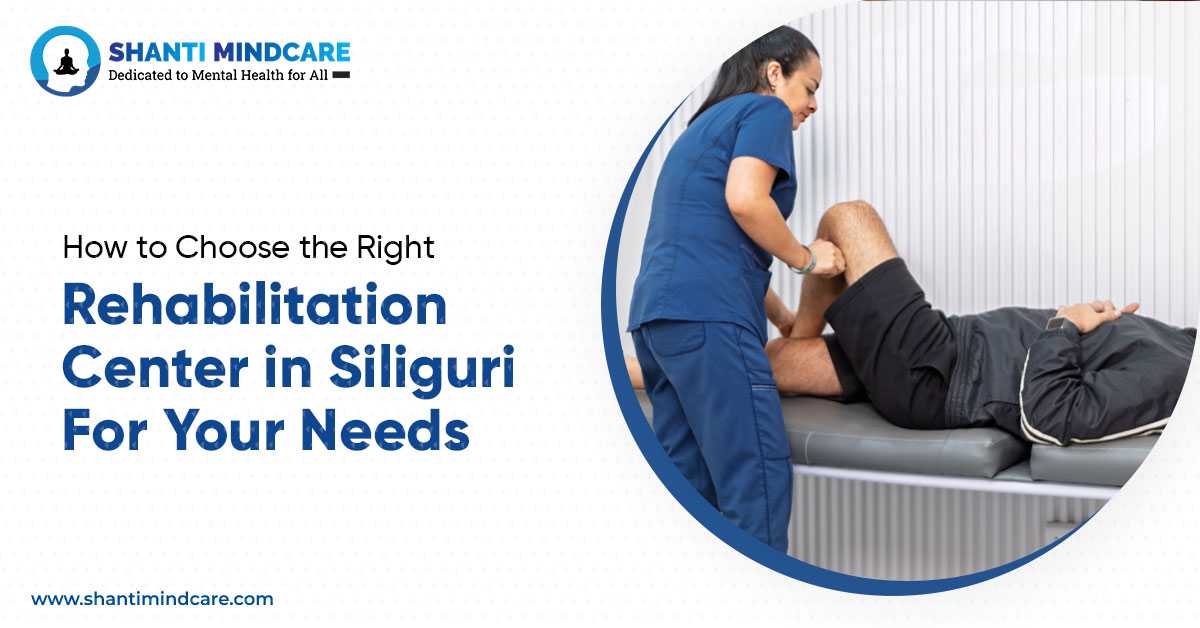Addiction is a dependency on something. That urge is hard to resist. And without expert attention, it becomes more severe, leading to numerous negative consequences. Help is available. Seek medical assistance for healing. Such dependence doesn’t occur overnight. Often it’s a progressive condition.
Substance misuse and substance use disorder are not the same. Substance use disorder is chronic as it results in tolerance. Untreated SUD can develop into an addiction, a more severe form of it. The most trusted rehabilitation centre in Siliguri offers extensive diagnosis and care for addiction healing. Come forward and give yourself better health.
SUD and addiction affect individuals of all ages and genders. Among all SUDs, tobacco consumption holds the highest rank. Common signs of drug addiction entail social withdrawal, frequently missing work, and school, showing almost no interest in favorite/day-to-day activities, ignoring personal hygiene, lack of interest in grooming, sudden requests for money, repetitive money demands, being secretive, bloodshot eyes, agitation, depression, weight loss, fatigue, weight gain, et al.
Drugs like cocaine, or meth may cause too much excitement, confusion, changes in heart rate, poor decision-making skills, rambling speech, increased alertness, anxiety, increased energy, restlessness, nasal congestion, insomnia, nausea, hallucinations, delusions, paranoia, mouth sores. Marijuana and hashish or cannabis-containing drugs result in dry mouth, euphoria, paranoia, decreased mental sharpness, difficulty concentrating, etc.
Effects of Drug Addiction on Physical Wellbeing
Over time drug addiction harms one’s emotional, mental, and physical health. Plus, relationships and financial life suffer due to addiction. Read on to get insights into physical health concerns resulting from drug addiction. Long-term effects of drug abuse include:
- Cardiovascular conditions. Opioid and stimulant abuse can lead to heart disease. Aortic dissection can be a complication of addiction and is a tear in the wall of the major heart blood vessel that carries oxygen-rich blood out of the heart. Misuse of drugs can interfere with blood pressure. It makes preexisting high blood pressure worse.
Valvular heart damage might occur with active misuse of a substance, resulting in signs like heart murmur, chest pain, irregular heartbeat, fainting, shortness of breath, edema, dizziness. Excessive use of alcohol increases two types of stroke: ischemic and hemorrhagic strokes. It can lead to coronary artery disease as well, the most common type of heart disease.
- Pancreatitis. Pancrease inflammation can be of two types: acute and chronic. Gallbladder stones, alcohol abuse, and tobacco smoking double your risk of getting such an inflammation. Misuse of cocaine, heroin, and prescribed drugs might affect the pancreas.
You may develop signs like nausea, vomiting, upper abdominal pain, fever, unintended weight loss, rapid pulse, oily stools. Poorly treated pancreatitis can bring about malnutrition, trouble breathing, kidney damage, diabetes, and even pancreatic cancer.
- Liver disease. Alcoholic liver disease is preventable. Excessive use of alcohol damages your liver over time due to scarring of the liver. It also increases the chance of liver failure. Cirrhosis liver refers to a late-stage liver disease that chronic alcoholism can cause.
Abdominal discomfort, fainting, loss of appetite, nausea, increased thirst, jaundice, dark bowel movement, agitation, weight loss, red hands and feet, skin colour changes, bleeding gums, and mood swings are some signs of alcohol-related liver disease. Talking to a medical expert for addiction relief can be of great help.




